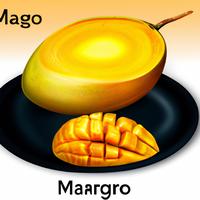
1 serving (100 grams) contains 60 calories, 0.8 grams of protein, 0.2 grams of fat, and 15.0 grams of carbohydrates.

Log this food in SnapCalorie

Nutrition Information
Calories |
142.9 | ||
|---|---|---|---|
% Daily Value* |
|||
| Total Fat | 0.5 g | 0% | |
| Saturated Fat | 0.1 g | 0% | |
| Polyunsaturated Fat | 0 g | ||
| Cholesterol | 0 mg | 0% | |
| Sodium | 2.4 mg | 0% | |
| Total Carbohydrates | 35.7 g | 12% | |
| Dietary Fiber | 3.8 g | 13% | |
| Sugars | 32.6 g | ||
| protein | 1.9 g | 3% | |
| Vitamin D | 0 mcg | 0% | |
| Calcium | 26.2 mg | 2% | |
| Iron | 0.4 mg | 2% | |
| Potassium | 400 mg | 8% | |
* Percent Daily Values are based on a 2,000 calorie diet. Your daily values may be higher or lower depending on your calorie needs.
Food Attributes
Source of Calories
About Mango half
Mango halves are a vibrant and delicious fruit, celebrated for their sweet, tropical flavor and juicy texture. Native to South Asia, the mango is now cultivated worldwide, featured prominently in cuisines from Indian to Latin American dishes. Rich in vitamins A and C, mango halves are excellent for boosting immunity and promoting skin health. They also contain dietary fiber, aiding digestion, and antioxidants like beta-carotene, which support overall well-being. While naturally low in calories and fat, their natural sugars should be consumed in moderation as part of a balanced diet. Mango halves can be enjoyed fresh, blended into smoothies, or added to salads and desserts for a refreshing burst of flavor. Whether savored alone or incorporated into savory and sweet recipes, mango halves are a nutrient-packed addition to any meal.



